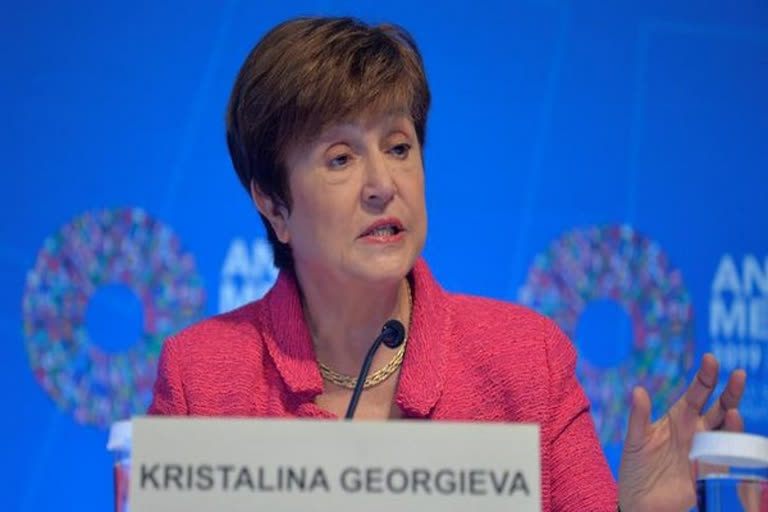Washington: The International Monetary Fund on Thursday urged policy makers across the world to act now to bring down inflation, put in place responsible fiscal policy, safeguard financial stability and carry reforms to address climate change, make digitalisation work for people and address inequality. Speaking to reporters at a press conference here, IMF Managing Director Kristalina Georgieva said, "The IMF is working with our 190 members on these issues. Our economic analysis is front and centre to help countries navigate this complex environment and avoid policy mistakes."
Describing it as a difficult global environment, Georgieva said the world economy has been hit by one shock after another the coronavirus pandemic, Russia's invasion of Ukraine and climate disasters on every continent. They continue to harm people's lives and they have caused a cost-of-living crisis, she noted. The immediate toll is clear. On Tuesday, we cut our global growth forecast to 2.7 per cent in 2023. Across many economies, the risks of recession are rising. And even when growth is positive, for many people, it will feel like a recession because of rising prices and shrinking real incomes, she said.
On top of this, risks to financial stability are growing and uncertainty remains exceptionally high. Our World Economic Outlook shows a one-in-four chance that global growth could drop to a historic low of 2 per cent next year, she said. These repeated shocks and growth setbacks raise a bigger question: are we experiencing a fundamental economic shift in the world economy from a world of relative predictability and stability, to greater uncertainty and volatility, she said.
Georgieva said the IMF sees very clear areas where they can do better, even in this more complex environment. First, bring inflation down. We know that rising interest rates come at a cost to growth. But we also know that not tightening enough to put a leash on inflation would mean interest rates staying higher for longer, resulting in even more harm to growth and people. For central banks, this means taking decisive action when necessary, and communicating as clearly as they can, she said.
